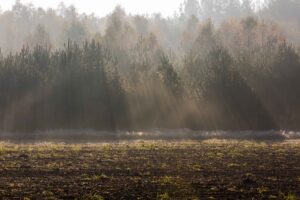When purchasing land, it is crucial for buyers to ask the right questions in order to make a sound investment. However, remember that all investments come with some degree of risk. Thoroughly research the property before making any decisions.
When purchasing land, there are a few key questions you should ask yourself to ensure a successful transaction:
What are the potential dangers?
When you visit a piece of vacant land, it may seem like the perfect opportunity to purchase property. However, it is important to ask some questions and do your research before making any decisions. This is known as due diligence. It helps to ensure that you are buying the right parcel of land for your needs. Performing due diligence before buying land can save you a lot of time and money in the long run.
What is the sequence of title ownership?
The title sequence, or chain of title, is a historical record of all past transfers of ownership. This information can be useful for potential buyers who want to learn about the property’s previous owners, easements, and other restrictions.
Despite this, land buyers frequently fail to verify that the seller is the rightful owner of the land. There is always a possibility that the previous owner did not unambiguously transfer ownership of the land to the seller, or the seller is deliberately trying to sell land they do not own.
If you’re looking to purchase land, it’s important to make sure that the title has no outstanding issues. One way to do this is to ask the seller for a copy of the deed. If they don’t have one prepared, you can also check the deed history with the county. This will help you to ensure that you’re getting all the benefits of land ownership.
What can you do with the land you are thinking of purchasing?
Although land that is unoccupied can be used for different purposes, purchasers must be cognizant of zoning and homeowners’/property owners’ association restrictions. Land that is unoccupied is usually categorized as residential, recreational, and undeveloped. It is important to ascertain restrictions on the land to discover what you can utilize the parcel of land for.
When buying land, it is important to consider the zoning to make sure it meets your needs. Zoning is the process of allocating and categorizing land into different zones. This helps to keep commercial and residential areas distinct.
It is important to get in touch with the Planning and Zoning Department for accurate and reliable information about the land you are considering purchasing. Every state and county is different, and zoning in one area may not permit the same activities as another.
Land zoned for recreation would be ideal for camping, hunting, fishing, and other outdoor pursuits. While land designated for housing would be more fitting for individuals who want to construct their dream home.
Are there any protective covenants on the property?
Conservation easements are agreements that place restrictions on how land can be used. They are often established by landowners in order to receive tax benefits. Conservation easements can be overseen by government agencies or local land trusts.
Conservation easements are agreements between landowners and conservation organizations that aim to protect specific areas of land. These easements are usually permanent, and prevent landowners from doing activities that could damage the natural resources on the land, such as clearing vegetation, hunting, or planting crops. Conservation easements can help to ensure that future generations will be able to enjoy the same natural resources.
When considering purchasing land for any purpose, it is important to verify with the county or city whether there are any conservation easements in place on the land. If you do decide to purchase a property with a conservation easement, be sure to ask how the easement will affect the land.
What are back taxes and zoning on a property?
Property back taxes are unpaid taxes that a potential land buyer must be aware of. This ensures that the buyer will not have to pay additional costs to obtain ownership of the property.
What public services or infrastructure are available or needed to develop the property?
Before you purchase a vacant or rural property, make sure to do your research on the utilities that are available or that would need to be installed. This includes water, electricity, and a sewer system. This way, you can be fully prepared for what it would take to get the property up and running.
There are many advantages to utilizing natural resources if you are looking for an off-grid property with privacy. Solar energy is an increasingly popular option for those looking to buy land in a rural area, as it can help to preserve rainwater and reduce costs.
If you have got the land closer to the city, the chances are that you will get all the utilities with the property. In case you need to find property utility information such as road access, boundaries of the land you are looking at, County’s GIS maps, and etc. It is always a good idea to call the utility service provider. The customer service representative will be able to tell you what services are available in the area and how to connect to them.
When you are interested in purchasing land, how do you go about contacting the owner?
When you’re looking to buy land, it’s a good idea to seek out help from someone who is knowledgeable and experienced. This person will be able to listen to you and understand your needs, and you should be able to establish a good rapport with them.
What privileges are entailed with this asset?
Owning property entitles you to a number of rights, including the right to road access, development rights, and mineral rights. These rights can be extremely valuable, and can increase the value of your property significantly.
Are there any environmental dangers or risks I should know about?
One of the key factors to consider when purchasing land is the potential for environmental hazards. These can include toxic runoff in water, deposition of chemicals, leakage of underground pipes containing soil, and more. If not properly managed, these hazards can pose a serious threat to your health and the land itself. As such, it is essential to ask about these potential hazards before making a purchase.
Has the soil’s perc test been completed?
It is important to know whether the land can absorb water from the septic system, as this impacts the efficiency of the system. There are a few ways to determine this: hiring a soil scientist to study soil types, their topography, and their ability to absorb water.
Are the property boundaries well-defined?
When considering purchasing a piece of property, it is important to ask whether a survey has been done recently to confirm the property boundaries. Uncertainties about the boundaries could lead to problems down the road.
What is the property’s location and how are the surroundings?
Before buying land, it is important to consider the location. Buying land is an investment, but you shouldn’t buy land that has no resale value. Check for the surroundings, environmental hazards, schools, and hospitals’ accessibility, and proper drainage channels.
Why is the land being sold?
When considering purchasing land, you must be aware of the reason the current owner is selling. This will give you some insight into any potential problems with the property. You should also familiarize yourself with the adjoining neighbors, as well as any property line disputes that may exist between the owner and their neighbors.
Acquiring a rural property can be a great way to diversify your investment portfolio and secure some real assets. There are a number of factors to consider before making such a purchase, but if you do your research and invest wisely, a rural property can be a very lucrative asset.
Interested in buying land? Check out these beautiful properties for sale in Virginia and North Carolina!





